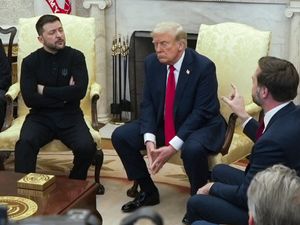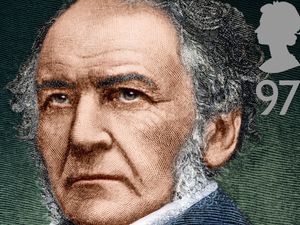Star comment: We must continue to stand firm against Putin's war
Vladimir Putin’s war in Ukraine is going badly. He is losing ground and, if media reports are to be believed, he is losing support at home.

As the West continues to push back against his barbarous actions, however, there is a price to be paid.
Putin’s decision to play politics with energy has had a profoundly negative effect on Europe. And while the UK received a relatively low supply from Russia, it is not immune from the effects of cost increases. Indeed, a number of our present economic woes are as a direct result of the war in Ukraine.
There are severe shortages of gas and oil in central Europe and that situation has a direction knock-on effect on the supply chain in the UK. Even so, despite the economic hit, we must continue to stand with Ukraine and if that means using power out of peak times, putting up with the occasional power cut or not washing our clothes until late at night, then so be it.
It is a small price to pay when we look at the death and destruction that Putin has wrought through his war of aggression in Ukraine.
We are standing firm and demonstrating solidarity with our brothers and sisters in Ukraine, who are leading the West’s fight for democracy and the rule of law. We must remember that if the bullying Putin is successful, he will wage wars way beyond Ukraine, seeking to gain territory elsewhere.
We must remember the suffering that those on continental Europe are enduring as we stand firm. For her many faults, Liz Truss’s line on Russia has been strong and we must continue to provide support. The costs of losing the war would be greater than those of winning it. Defeat is not an option.
***
There is nothing wrong in having convictions or following a political philosophy.
Liz Truss apparently follows the principle of ‘Neoliberalism’ – of allowing the markets to thrive without intereference and encouraging growth of the economy.
That is a similar brand of economics favoured by Margaret Thatcher, who transformed Britain in her decade in charge.
Like her or loathe her, Thatcher was an brilliant political operator. She knew what she wanted to do with the country, but she implemented her policies when she believed the time was right.
The current Prime Minister and her Chancellor Kwasi Kwarteng are like over-excited schoolchildren. They couldn’t wait to unveil policies that, while perfectly valid, came at the wrong time and promptly spooked the markets. If they are to survive they must learn to curb their enthusiasm.





